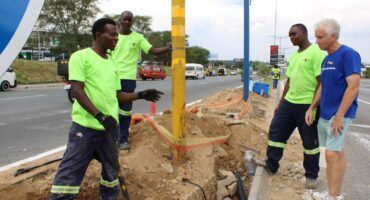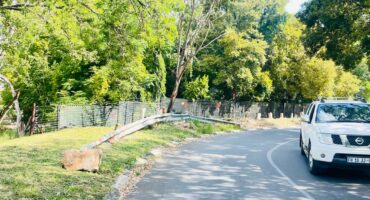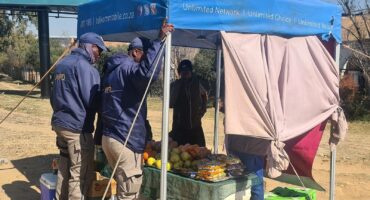The economic crisis of pandemic deepens as 40% of South Africans who applied for a loan are not sure if they can pay it
In recent months, the amount of loans that South Africans have applied for has increased and, according to experts, that amount is about to reach the highest level in the near future.

In order to cope with the economic crisis caused by the coronavirus pandemic and the consequently prolonged lockdown, many South Africans have turned to the help of a personal loan. The complication at the present is that they are not sure if they will be able to afford it.
The fact that a third of the country’s population is not working for a limited period of time due to the prolonged state of lockdown, and more than 61% had to face the loss of their job has forced South Africans to appeal to personal loans in just the pursuance of making ends meet. Lots of people are even selling their personal assets in order to help in their homes to deal with the economic crisis.
In recent months, the amount of loans that South Africans have applied for has increased and, according to experts, that amount is about to reach the highest level in the near future.
If you are one of those who are thinking of applying for a loan, in order to cope with the current economic crisis is advisable to research which loan suits best to your specific need in order to be capable of negotiating with your creditor and make the most of it.
Given the current economic circumstances, according to The Banking Association of South Africa (BASA), the number of loan applications is expected to increase dramatically in the subsequent time.
“The slow pace of economic reform, an unreliable electricity supply and lack of inclusive growth, with the resulting weak consumer and business confidence, has also reduced opportunities for enterprise and the need for credit.”
“The devastating 51% contraction (saar) in the South African economy in the second quarter of this year underlines the desperate need for structural economic reform, sustainable fiscal management, and bold political leadership to ensure their successful implementation,” said The Banking Association of South Africa.
According to a research carried out by Ask Afrika’s Covid-19 Tracker, among the total of loans taken since the beginning of the pandemic, 45% corresponds to an amount of less than R1000 and only 12% to an amount over R30000. Although a large part of the loans taken coincides with low amounts, still 40% corresponds to South Africans who borrowed and are not sure of being able to pay it back. Additionally, another alarming number is 54% of South Africans who say they are concerned about how much food reserves they have at home for the uncertain future times.
From the beginning of lockdown, in March 2020, banks have provided individuals with a total payment breaks of R33.49 billion to help them to live through during the lockdown period.
Another study, conducted by the Debt Association on bad debts, shows that a great number of people have asked for loans in order to spend that money on basic necessities, such as food and transportation.
Resulting from the coronavirus crisis, many companies have decided to cut down expenses and laying off employees. As a result of this, many South Africans had to face the reduction of work hours which also means their income was reduced.
The study by Ask Afrika’s Covid-19 Tracker states that the greatest fear of South Africans, apart from contracting Covid-19, is to lose their job. With the uncertain future ahead, the feeling of losing a job gets worse than the fear of the contagion of the virus. This fear increases for those who have applied for a home loan, credit card installments, or any other type of credit.
In case you do not know it, South Africans who take on credit products must be covered by credit insurance. This insurance is in charge of the debt in the unfortunate event of the death or permanent disability of the holder of the debt.
The good news is that if the debts were acquired after August 2017, things change a little. In agreement with the new credit insurance regulations, the terms were extended. As of August 2017, your payments will be covered for up to 12 months not only for illness but also for becoming unemployed or being unable to earn an income. Even in the event of not being fired and having been granted a leave without pay, the new regulations stipulate that you must also be covered.
Lee Bromfield, CEO of FNB Life said “If a customer is permanently employed and they become unemployed or are unable to earn an income due to contracting Covid-19 or due to measures put in place to prevent the spread of the virus, all their obligations under the credit agreement that become due and payable can be paid either for 12 months during the remaining repayment period of the credit agreement, or until they are able to find employment or earn an income whichever is the shorter period,”
“If you are self-employed, and you can’t earn an income due to the crisis, the same criteria should apply. If you can prove that you aren’t able to earn an income, your installments should also be covered.”
South Africans come from a long and unstable economic past history, which in the present can be reflected in consumer behavior during the current year. That is the reason why it is paramount for the financial sector to acknowledge the importance of financial literacy for the South African population.
Tlalane Ntuli, co-founder and Chief Operating Officer at Yalu, the distributor of the Yalu Credit Life Insurance Plan, insured by Old Mutual Alternative Risk Transfer Limited, a registered long-term insurer said “If we accept the challenge presented by this history with the right kind of actions today, we’ll put ourselves in a great position to use the opportunities offered by new technologies to create better financial value – and protection – for all our people, even in times of global crisis.”





